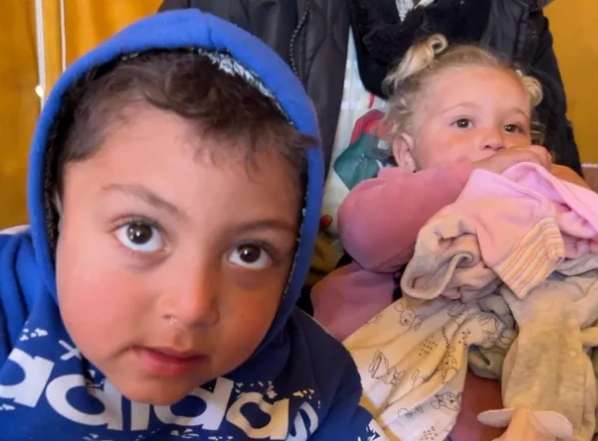Gaza Infants Face Life-Threatening Conditions Amid Global Nativity Celebrations
The stark contrast between the festive celebrations of Christmas and the harsh realities faced by displaced families in Gaza highlights a humanitarian crisis of immense proportions. While the world commemorates the birth of Jesus in a humble stable, newborn babies in nearby Gaza are succumbing to the unforgiving cold in makeshift tents, a tragic irony that underscores the desperate plight of these vulnerable individuals. The ongoing conflict and displacement have created a dire situation where basic necessities like shelter, warmth, and adequate healthcare are severely lacking, leaving infants exposed to life-threatening conditions.
The story of baby Sila, a mere 20 days old, epitomizes the tragedy unfolding in Gaza. Born into a family displaced by the conflict, Sila spent her brief life in the overcrowded al-Mawasi camp, an area plagued by flooding, inadequate sanitation, and biting cold. Her parents, Nariman and Mahmoud, sought refuge in the camp after fleeing their home in northern Gaza, hoping to ensure their children’s safety. Mahmoud, a fisherman, found himself unemployed, leaving the family with no income and facing an uncertain future. Nariman, pregnant at the time of their displacement, gave birth to Sila under challenging circumstances, struggling to provide even basic necessities like milk and diapers. The relentless cold, coupled with the leaking tent offering little protection from the elements, proved too much for the fragile infant, leading to her tragic death from hypothermia.
Sila’s story is not an isolated incident. She is one of several newborns who have perished due to hypothermia in the span of just two weeks. Nighttime temperatures plummeting to a chilling 7°C (45°F), combined with damaged tents and restricted access to aid, have exacerbated the already precarious situation. The United Nations has raised concerns about Israel’s limitations on food and aid entering Gaza, a claim Israel disputes. The scarcity of resources and the challenging environment have created a perfect storm, leaving infants particularly vulnerable to the ravages of the cold. The lack of adequate shelter, coupled with limited access to medical care, has turned a basic human need for warmth into a life-or-death struggle for these newborns.
The health challenges extend beyond the immediate threat of hypothermia. The ongoing conflict has led to an increase in premature births and malnutrition among mothers, further compromising the health and resilience of newborns. These babies, born into a world of displacement and hardship, are already at a disadvantage, their immune systems weakened and their bodies ill-equipped to withstand the harsh conditions. The combination of prematurity, malnutrition, and exposure to extreme cold creates a lethal cocktail, significantly increasing the risk of mortality among these vulnerable infants.
The desperation of parents facing the loss of their children under such harrowing circumstances is palpable. Yehia al-Batran, another grieving father, lost his 20-day-old son, Jumaa, to hypothermia. Clutching his lifeless child outside al-Aqsa hospital, Yehia’s words echo the anguish and helplessness felt by many parents in Gaza: “He’s frozen. We don’t even have enough blankets. What can I do?” This poignant question underscores the dire need for immediate intervention to alleviate the suffering of these families and prevent further preventable deaths. The lack of basic necessities, such as blankets to provide warmth, highlights the severity of the crisis and the desperate measures families are forced to take to survive.
International organizations like UNICEF have issued urgent warnings about the escalating crisis, emphasizing that more children’s lives will be lost if conditions do not improve rapidly. The combination of freezing temperatures, inadequate shelter, and limited access to essential supplies creates a life-threatening environment for infants. Without immediate and substantial intervention to address these critical needs, the death toll among newborns is likely to rise. The international community must act swiftly to ensure that these vulnerable children receive the necessary support to survive the harsh winter and the ongoing conflict. The provision of adequate shelter, warm clothing, and access to healthcare are essential to preventing further tragic losses.
Share this content:












Post Comment